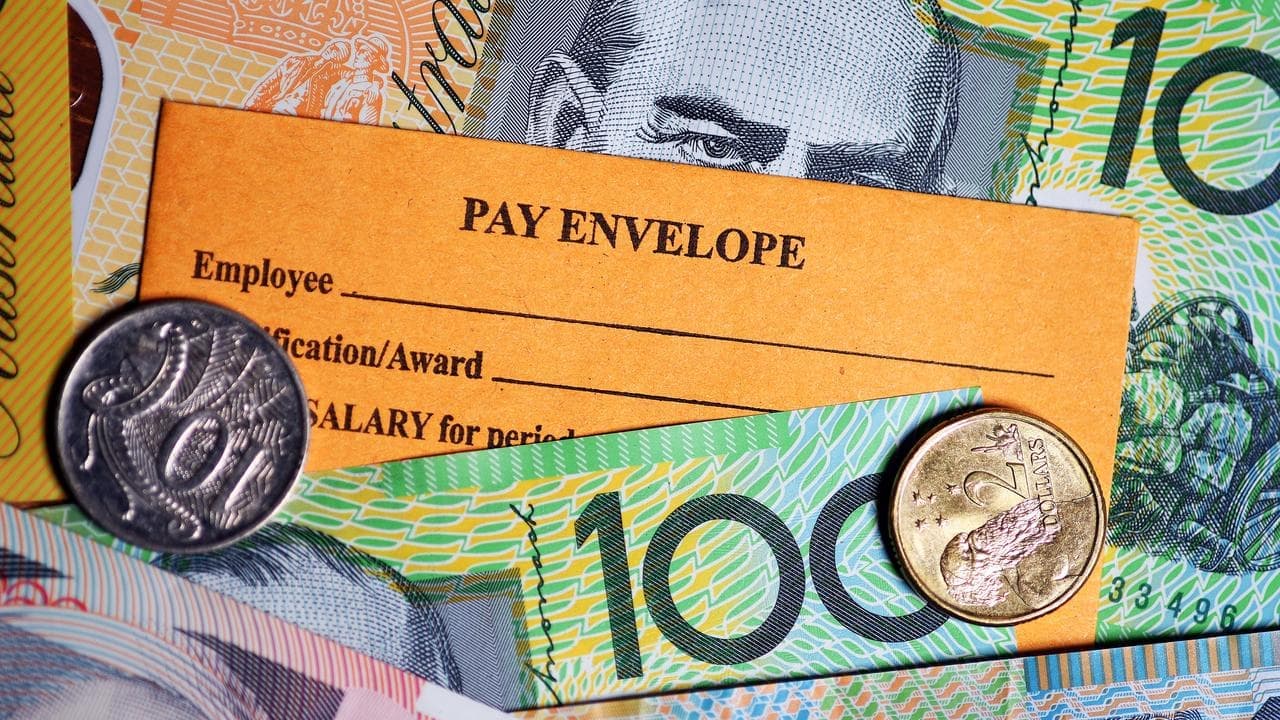WHAT WAS CLAIMED
The Australian Constitution says paying income tax is voluntary.
OUR VERDICT
False. Paying income tax is compulsory under Australian law.
AAP FACTCHECK - Former One Nation senator Rod Culleton has claimed you don't have to pay income tax because it's voluntary under the constitution, but the tax office warns following that advice could result in severe consequences.
The constitution does not describe any tax as voluntary, and the Australian Taxation Office (ATO) and experts say the claim is false.
More than 150 people have recently been prosecuted for failing to lodge a tax return, while others claiming to have acted on the belief that paying tax is voluntary have been fined more than $14,000.
Mr Culleton appeared on the Senate ballot paper for WA in the May 3 election after the Australian Electoral Commission (AEC) referred him to federal police one day earlier for allegedly failing to disclose his bankruptcy on his nomination form.

The ex-senator made the claim about income tax in a Facebook clip taken from a recent podcast appearance.
"We actually don't have to pay income tax because income tax came in as a tax to service previous wars," Mr Culleton says.
"These senators should be saying, there's the question that goes into parliament, 'is personal income tax voluntary?'.
"Do the research, and if you go and have a look at it, the constitution says, through the Halsbury's Laws of England, it's voluntary."
The constitution does not describe income tax, or any other tax, as 'voluntary', and experts and the ATO say the claim is inaccurate.
Miranda Stewart, a tax law expert at the University of Melbourne, called the claim "nonsense".
"We have a statute and it imposes income tax validly under the constitution," she told AAP FactCheck.
Professor Stewart said income tax is imposed by the Commonwealth under the Income Tax Act 1986, the Income Tax Rates Act 1986, the Income Tax Assessment Act 1997 and the Income Tax Assessment Act 1936.
All of these acts are valid under Section 51(ii) of the Australian Constitution, which grants parliament the authority to make laws regarding taxation (page 16).

Halsbury's Laws of England is an encyclopedia of law in England and Wales. There is also a Halsbury's Laws of Australia, which applies to Australian law.
Neither is publicly available, and neither is referenced in the constitution.
Joe McIntyre, a law expert at the University of South Australia, says the claim is "completely without foundation or legal merit".
"Any person relying upon it is likely to find themselves significantly worse off," Dr McIntyre told AAP FactCheck.
Similar claims have been made in Australia for many years and appear to have originated in Canada, he said.
"These are routine, average pseudo-law claims that are made and rejected on a daily basis throughout Australian law," Dr McIntyre said.
An ATO spokesperson told AAP FactCheck that deliberately failing to lodge a tax return could result in fines and criminal prosecution.
The latest figures, covering the 2022/23 financial year, show there were 170 prosecutions for failing to lodge a tax return.
Failing to report income can result in imprisonment for up to 12 months.

Two recent cases involving people who claimed paying income tax was voluntary were both successfully prosecuted, with one fined $15,220 and the other fined $14,000.
In the latter judgment, Administrative Appeals Tribunal senior member Michelle Evans-Bonner called the claim "a groundless and illogical fringe theory that has no foundation in Australian law".
While the ATO website states the "vast majority of tax due is paid voluntarily", the organisation's spokesperson said this doesn't mean paying it is voluntary, only that most people follow the law "without raising spurious arguments or needing to be chased by the ATO".
Sovereign citizen-type claims, the spokesperson said, that the ATO doesn't have legal standing or you can somehow "opt out" of the tax system, are likely to lead to significant penalties.
AAP FactCheck has previously debunked a claim about the legal authority of the ATO.
Mr Culleton is correct that federal income tax was introduced as a wartime measure, however.
A history of Australia's tax system, published by the Treasury, states that federal income tax was introduced in 1915 to fund the war effort and remained in place following the war's end.
States had also collected income tax, including prior to 1915, but in 1942 income tax was consolidated at the federal level.
AAP FactCheck has also previously debunked a claim by Mr Culleton questioning the validity of the 2022 federal election.
His referral to federal police by the AEC on May 2, 2025, is his second such referral after he nominated himself under the same circumstances for the 2022 vote, with prosecution related to that incident ongoing.
Mr Culleton was disqualified from parliament in 2017 after being declared bankrupt by the federal court.
AAP FactCheck is an accredited member of the International Fact-Checking Network. To keep up with our latest fact checks, follow us on Facebook, Instagram, Threads, X, BlueSky, TikTok and YouTube.












